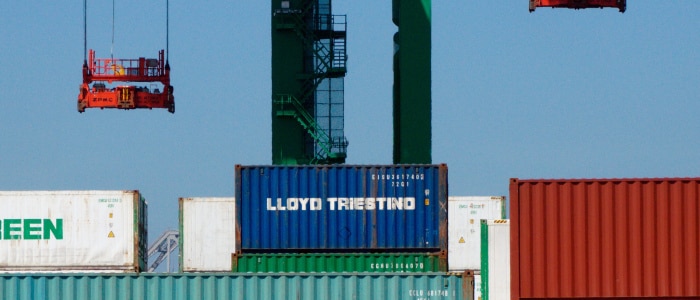Published
A Funeral l(ITA)ny for Technology Trade
Subjects: European Union WTO and Globalisation

It has been called the mother of all plurilaterals – or the only evidence of any trade liberalisation since the creation of the WTO. Nonetheless, the renegotiation of the Information Technology Agreement (ITA) was (once again) declared dead on Friday after 4 months of medically induced coma.
China has been made the scapegoat for this breakdown. It is beyond any doubt that China had a different level of ambition compared to rest of the world. In June, it designated over a hundred ICT products to be sensitive and requested either lengthy staging or complete exclusion from the new ITA. News reports reveal that China’s list of exclusion is cluttered by parts and components that every economy needs to import to effectively export products of higher value. Other products mentioned amongst China’s sensitivities include televisions, batteries, scientific equipment and “other” products (a classification where future innovations end up).
If these reports are true, anyone fluent in trade numbers can deduce that China wants to cut the value of the ITA to about half. China’s role in the ICT sector is central. There is no agreement without it – and the ITA signatories had no choice but to walk away from the negotiating table.
Meanwhile in Beijing, the third plenum of the CPC has come to an end. The reformists enjoyed an unprecedented support for its agenda. There is no reason to doubt the new Chinese leadership on its zeal or its ambitions to open up the economy. The real question is whether it has the political capital necessary to see the reforms through once they are rolled out.
The new Chinese leadership has offered to negotiate FTAs to left and right, literally, including the EU, Korea, Japan and Australia. However, China is a relatively unexperienced negotiators who has not negotiated any substantial trade agreement since it joined the WTO in 2001. Moreover, China has few ideas about how to manage domestic protectionist interests. It is questionable whether China is fully aware of what these FTAs entail in terms of concessions it must do – or the difficult trade-offs between different domestic interest groups China must manage.
The ITA negotiations clearly prove this. Although China enjoys a hefty trade surplus on the products it declared as sensitive (Digital Europe conservatively puts the surplus to 40%), it is reluctant to open up its own ICT markets. China is inarguably the biggest beneficiary of the ITA – benefits it was ultimately incapable of reaping this time.
China’s sudden turnabout at the negotiating table is almost certain to have consequences for its trade policy. China has formally requested to join the services plurilateral, the TISA, which aims to liberalise trade across all services sectors. The Chinese services sectors, like the construction and banking sectors, are far more protected than its relatively open ICT industry – this equation simply doesn’t add up.
Consequently, TISA-members like Japan and the US have aired their suspicion whether China ought to be allowed in TISA. Many Europeans have written off this opposition as geopolitical gibberish. But as it turns out, the burden of proof falls on China – there is no reason to doubt China’s intentions, but if China is not ready for the ITA, does it know what it is getting into when requesting to join the TISA? China now has to prove it actually wants what it is asking for.
Hosuk Lee-Makiyama (with Lisa Brandt)
I agree that the burden of proof is on China for both ITA and TiSA. The question is how can China presents the proof when the ITA negotiations are suspended every six months, or when China is not allowed at the TiSA negotiating table!
Pascal Kerneis – European Services Forum
Pascal, this time China effectively ended the negotiations on the ITA.
Also, China only needs to present a convincing landing zone of what it is willing to do in TISA. Bear in mind that other members have nothing to win from letting China (or anyone) join/accede before the basic texts are stabilised. I’m not saying this is right or fair – just that China is the demandeur, and as the demandeur, it’s your responsibility to make the first offer, prove your good faith, and make it an interest of the existing members to let you join.
During the recent funeral of our best leader ever Nelson Mandela, I managed to spot a few aircraft as they entered South African air space. more info